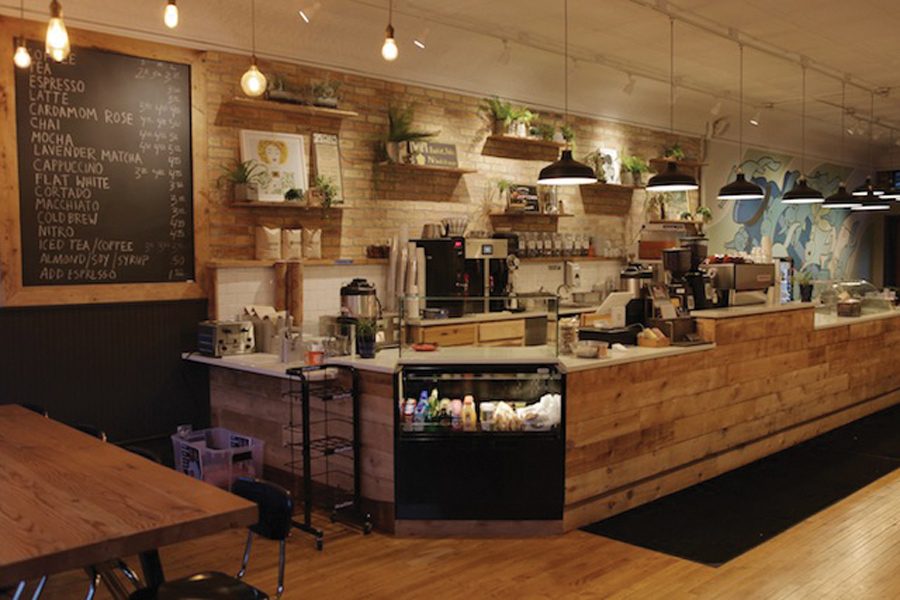Backlot Coffee goes green, eliminates plastic straws
Backlot Coffee, 2006 Central St. The coffee shop will provide paper and corn-based straws to customers in an effort to become a more sustainable operation.
April 18, 2018
Backlot Coffee has given out its last straw.
Its last plastic straw, that is. The Evanston-based coffee chain switched from non-biodegradable straws to more sustainable alternatives on April 16, and is now offering its patrons a choice between paper or corn-based straws. Additionally, Backlot is providing stainless steel straws for sit-down use.
John Kim, who co-founded Backlot’s two locations — at 2006 Central St. and in Old Irving Park in Chicago — said the decision to make the switch was a natural one. He said taking steps to reduce trash, even through a small change like the new straws, is important in an industry that produces waste on a daily basis.
“It’s a little scary because in cafes, straws are quite popular,” Kim said. “We’ll see how people respond to the (straws), but so far people have been quite excited about the change.”
Kim said once staff has received enough feedback regarding the paper and corn-based straws, Backlot may settle on the more popular alternative.
As cities around the world come to terms with the environmental effect of plastic products — which don’t degrade and often end up in landfills or oceans — regulations reducing the use of plastic bags and straws have begun to spread. Cities like Malibu, California, and Seattle have placed bans on plastic straws in restaurants, requiring owners to provide a more environmentally friendly alternative.
According to the Shedd Aquarium in Chicago, 500 million straws are used each day by Americans alone. The aquarium has launched its own campaign, called #SheddTheStraw, to encourage people to avoid using disposable straws.
Beth Flintoft, a publicist who is working with Backlot, said the aquarium has provided the cafe with signs that explain the environmental impact of plastic straws to its customers.
She said Backlot is approaching its sustainability efforts “with a community lens in mind” by partnering with local organizations.
For example, Backlot is working with Collective Resource, an Evanston-based organization that will provide the cafe with composting services.
Backlot already composts its coffee grounds, but it will now expand that practice to include all biodegradable waste. Kim said Collective Resource will pick up the shop’s compost on a weekly basis.
Becky Brodsky, a zero-waste consultant with Collective Resource, said Backlot is a good example of a local business that is trying to make its operations more sustainable. Brodsky said sustainability often comes with increased costs for businesses, but it pays off in the end.
“It’s an investment for them to start composting,” Brodsky said. “It’s something most businesses don’t take lightly. It can pay itself off because it can reduce what you send to the landfill.”
In addition to composting and providing alternatives to plastic straws, Backlot will be discounting its reusable drinkware starting on Earth Day, April 22.
Kim said he wants to encourage customers to bring in their own reusable cups and travel mugs, but realizes that may not be convenient for those looking for coffee on the go.
“People’s lives are busy,” Kim said. “Everyone’s going to do what they can do (to be sustainable), and we want to make that as easy as possible for people.”
Email: [email protected]
Twitter: @kristinakarisch


